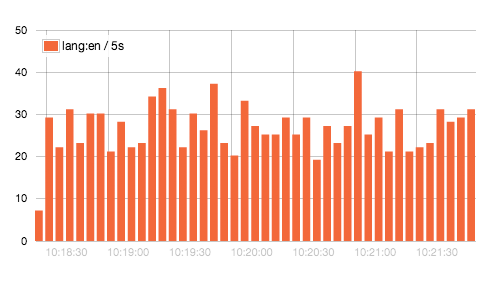DO NOT SUBMIT INQUIRES via G2. Go to Elastic.co. Elasticsearch is a distributed, RESTful search and analytics engine capable of solving a growing number of use cases. As the heart of the Elastic Stack (what used to be “ELK), it centrally stores your data so you can discover the expected and uncover the unexpected. Developed and maintained by Elastic, Elasticsearch can be deployed on-premise or in the cloud with managed or unmanaged services like AWS, Microsoft Azure and Google Cloud Platform. Organizations looking for managed Elasticsearch can use Elastic Cloud, the official hosted Elasticsearch service by Elastic.
Elasticsearch
Images
Check Software Images



Customer Reviews
Elasticsearch Reviews
Andriy S.
Advanced user of ElasticsearchWhat do you like best?
Elastic search is the best tool for working with textual information.
The first advantage is a speed of search of your indexed documents. Millions of documents can be processed and be ready for search immediately.
The second big advantage of elastic search is its scalability. You can start with 1 node but when your project grows you simply adding nodes to the cluster and elastic search manages everything by itself and transfer data equally among nodes.
The third advantage is pretty powerful "free-tier" which is ideal for the startup projects.
Elastic search has a lot of products from the same company ("Elastic stack") which as a set is very powerful "toolbox" for solving set of problems such as: website log analysis, analyzing scientific information, presenting information in graphical form.
My favorite feature is data aggregations when the developer can set a query inside query and then split response for buckets and aggregations do not add any time for query execution.
Working with GEO - data "out- of-the-box"
Elastic search uses http access which is much more convenient than working with Java Lucene directly. In addition response is given is JSON, which is very easy to process.
Additionally it has almost all main languages package support, so we parse data with GO-lang and show it on the website with Java-script.
What do you dislike?
It's hard to find... However elastic search requires a lot of operative memory as its based on Java and Java Virtual Machine. Its Query DSL (Domain Specific Language) is very different from SQL, so it has some learning curve.
Recommendations to others considering the product:
The first recommendation is security - ALWAYS protect 9200 default port (it's better to change the default port in settings), also close a Kibana port 5601. You will be hacked immediately and all your data will be deleted.
What problems are you solving with the product? What benefits have you realized?
We use elastic search like a database in real estate website. It fits much better to the task than a SQL database as it provide much more capabilities for data analysis.














